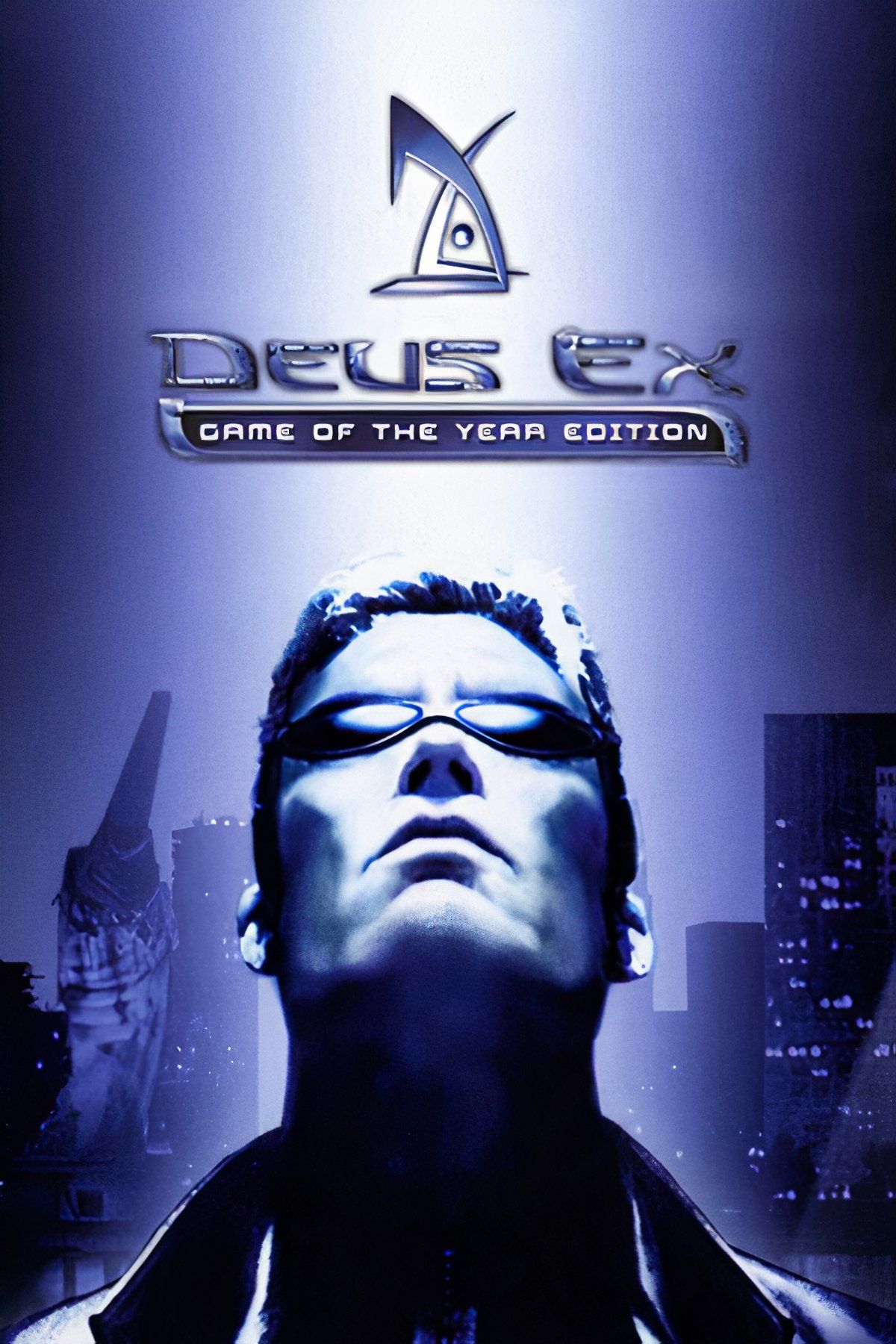Warren Spector’s Deus Ex is one of the most important PC games released during one of the most pivotal moments for the medium, joined by a class of all-timer video games that have each since gone on to take a place on the Mt. Rushmore of FPS innovation. Half-Life, Thief, System Shock 2, and then Deus Ex moved the needle forward for what was possible in a first-person shooter and what modern interactive media was capable of. But it would be Deus Ex‘s innovations, emphasis on immersion, and unparalleled degree of player agency that had the greatest impact, helping almost single-handedly to create the immersive sim genre and seeing its influence spill over into several other gaming genres.
Aside from its place as a groundbreaking title of its time, Deus Ex‘s innovations continue to show up time and again in titles both expected and unexpected. Arkane’s Prey and Dishonored games have as much Deus Ex DNA in them as most other first-person immersive sim titles do, but there’s also a clear throughline from Deus Ex‘s branching pathways, impactful choices, and multi-faceted character progression to modern-day RPG masterpieces like Mass Effect and even Cyberpunk 2077. Deus Ex teaches a valuable lesson about empowering the player and fostering ingenuity, and it’s one that still reverberates today.

Related
The Future of Deus Ex is Uncertain, But Indies Are Picking Up The Slack
With the Deus Ex franchise on hiatus, it might be time for fans of cyberpunk conspiracy theories to look toward indies for their immersive-sim fix.
Deus Ex and Its PC Gaming Cohort Reframed How Players Thought About Interactivity
The seismic shift brought on by Valve’s Half-Life would end up being just the first wave of a coming deluge of innovation in the FPS genre. Hot on its heels was Warren Spector’s Thief, which was quickly followed up the next year by the groundbreaking System Shock 2. But a year later, in 2000, Warren Spector took all the lessons learned from both the original System Shock and Thief to deliver Deus Ex, inadvertently shaping gaming in the process.
Mechanics and gameplay elements that most players assume as standard today either debuted or reached a state of refinement not previously seen in Deus Ex. For the first time, players had an interactive world they could explore in just about any way they chose, with multiple potential pathways to victory and the only real limitations placed on the player being their own imaginations. Choices mattered, character progression had to be measured and precise to cater to how players wanted to play the game, and the cyberpunk world of Deus Ex felt like it had been plucked straight from the future with gameplay to match. Players had more agency in Deus Ex than at any time in the history of the medium, and there was no going back.
From Immersive Sims to RPGs and Beyond, Deus Ex’s Influence Still Looms Large
Of course, the most obvious impact of Deus Ex was quickly felt in the creation of the first-person immersive sim genre, but that’s far from the only realm of gaming where the title’s influence would reach. At its core, Deus Ex was as much a role-playing game as it was a first-person shooter, and the inherent value of player agency it communicates (and the impact it can have on true immersion) would arguably impact the RPG genre more than FPSes. Not long after Deus Ex‘s arrival, players would begin to see RPGs with branching pathways based on player choice and different options for tackling objectives that cater to certain progression pathways. Without Deus Ex, it’s hard to imagine that the entire BioWare catalog from Knights of the Old Republic onward looks the same.
Similarly, Deus Ex‘s continued relevance has helped usher in a new wave of indie immersive sim games that can stand toe-to-toe with their AAA counterparts. Games like Prey and Dishonored are the two most well-known immersive sims to come from the world of AAA publishing, but just as critically acclaimed are indie immersive sims like Cruelty Squad, Gloomwood, Shadows of Doubt, and Fortune’s Run, with a growing list of in-development projects showcasing how playing Deus Ex helped shape the current generation of game developers. As it turns out, players love having options, and almost no game before it understood that concept quite like Deus Ex.





